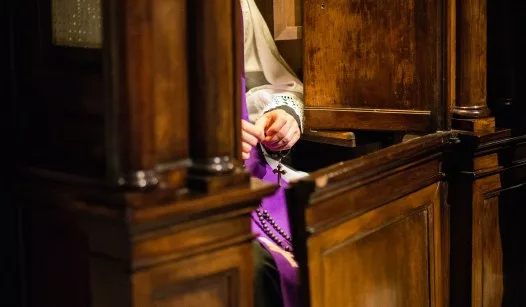In recent discussions surrounding religious freedoms, Washington State’s approach to confession has sparked significant debate. The government’s intervention in spiritual practices raises concerns not only for the Catholic Church but also for various faith organizations across the state and beyond. This situation illustrates a broader issue: when the government encroaches on one area of religious practice, it sets a concerning precedent that could impact other faith communities.
Confession, a sacramental practice in the Catholic faith, involves the private acknowledgment of sins to a priest, who offers guidance and absolution. This sacred tradition is deeply rooted in the spiritual lives of many believers. However, recent legislative measures in Washington have sought to impose regulations that challenge the confidentiality and sanctity of this practice.
The heart of the matter lies in the balance between safeguarding public interests and respecting individual freedoms. Advocates for the regulation argue that it is necessary to protect vulnerable individuals, particularly minors, from potential abuse. They contend that mandatory reporting laws should extend to clergy members, requiring them to disclose any information regarding abuse disclosed during confession. While the intention behind these measures is to promote safety, they inadvertently threaten the foundational principles of religious freedom.
Critics of this approach highlight the potential consequences for the wider religious community. By targeting confession, the government risks infringing upon the rights of all faith organizations to practice their beliefs without interference. This could lead to a slippery slope where other religious practices are similarly scrutinized or regulated, undermining the separation of church and state that is a cornerstone of American democracy.
Moreover, the implications extend beyond the immediate concerns of confession. When the government begins to dictate the terms of spiritual practices, it raises questions about who holds authority over religious doctrine. Faith leaders may find themselves caught in a difficult position, torn between their obligations to protect their congregants and their commitment to uphold the tenets of their faith.
The discussion around Washington State’s stance on confession is not merely a local issue; it resonates with broader national conversations about religious liberty. Across the United States, various faith communities are grappling with the challenges posed by governmental regulations that seek to impose restrictions on their practices. This situation serves as a reminder of the importance of vigilance in protecting religious freedoms for all.
As the debate unfolds, it is crucial for individuals to engage in meaningful conversations about the implications of such regulations. Understanding the nuances of the issue can help foster a more informed public discourse that respects both the need for safety and the importance of religious freedom. In navigating this complex landscape, it is essential to recognize that the rights of one group should not come at the expense of another.
In conclusion, Washington State’s approach to confession highlights a critical intersection between government regulation and religious freedom. As the state grapples with the challenges of safeguarding its citizens while respecting spiritual practices, the potential consequences of its actions could reverberate far beyond its borders. It is imperative for all citizens to remain engaged in this dialogue, advocating for a balance that honors both individual freedoms and the collective responsibility to protect vulnerable populations. The outcome of this discussion will undoubtedly shape the future of religious practice in the United States, making it a pivotal moment for all faith communities.
